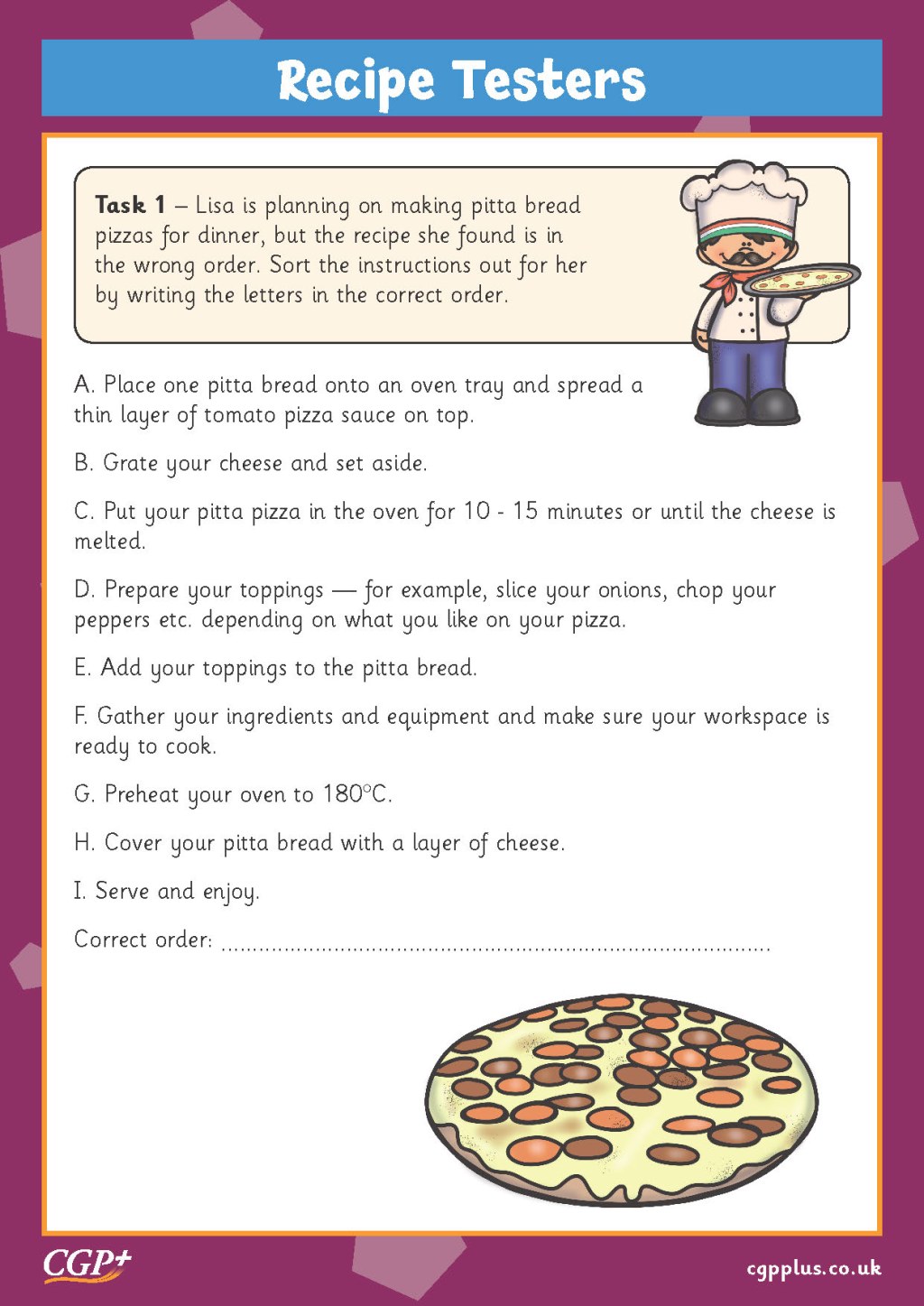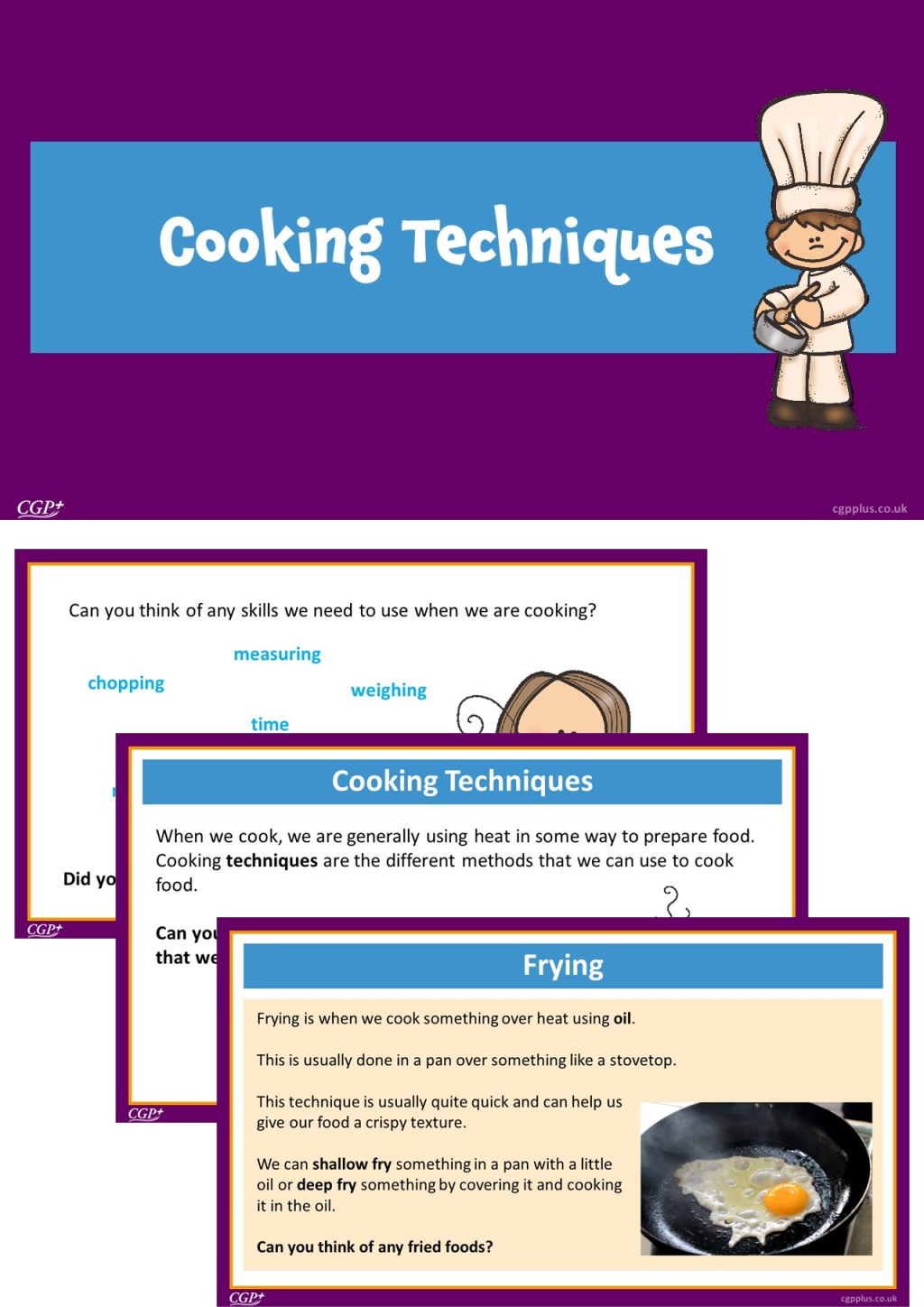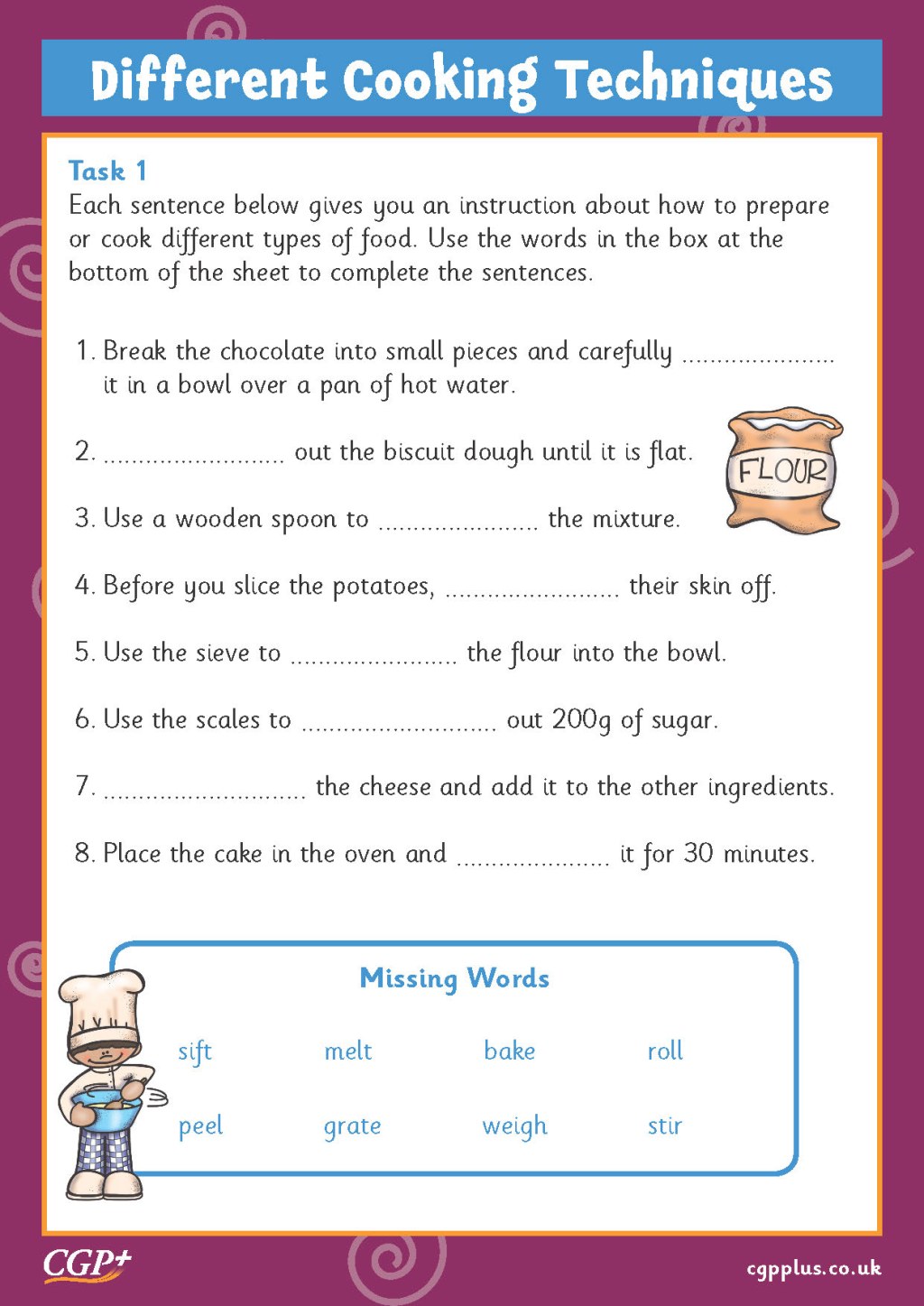Cooking Techniques KS2: Mastering the Art of Culinary Delights
Greetings, Readers! Today, we invite you to embark on a culinary journey and explore the fascinating world of cooking techniques KS2. Whether you are a budding young chef or simply curious about the culinary arts, this article will provide you with valuable insights and knowledge to enhance your cooking skills. So, put on your aprons and let’s dive into the wonderful realm of cooking!
Introduction
1. What are Cooking Techniques KS2?
2. Who can Benefit from Learning Cooking Techniques KS2?

Image Source: cgpplus.co.uk
3. When Should You Start Learning Cooking Techniques KS2?
4. Where Can You Learn Cooking Techniques KS2?
5. Why Should You Master Cooking Techniques KS2?

Image Source: cgpplus.co.uk
6. How Can You Learn and Practice Cooking Techniques KS2?
Before we delve into the nitty-gritty details of cooking techniques KS2, let’s first understand what they encompass. Cooking techniques KS2 refer to a set of skills and methods used in the kitchen to prepare and cook various dishes. From basic knife skills to more advanced techniques like sautéing and baking, mastering these techniques will empower you to create delicious and visually appealing meals.
Who can benefit from learning cooking techniques KS2, you may wonder? Well, the answer is simple – everyone! Whether you are a child, a parent, a teacher, or even a professional chef, understanding and applying these techniques can significantly enhance your cooking prowess. By equipping yourself with these skills at a young age, you can lay a solid foundation for a lifetime of culinary adventures.
So, when should you start learning cooking techniques KS2? The beauty of these techniques lies in their versatility and adaptability. Children as young as key stage 2 (KS2) can begin exploring the world of cooking, under proper adult supervision, of course. By starting early, children can develop a love for food and cooking, while also learning valuable life skills such as teamwork and creativity.

Image Source: cgpplus.co.uk
Wondering where you can learn cooking techniques KS2? The answer may be closer than you think – your own kitchen! However, if you prefer a more structured approach, numerous cookbooks, online tutorials, and cooking classes are available to guide you through the process. Additionally, schools often offer cooking lessons as part of their curriculum, providing an excellent opportunity for children to learn and experiment with different techniques.
Now, you may be wondering why you should bother mastering cooking techniques KS2. The answer lies in the immense benefits these skills bring to your life. From improved nutrition and healthier eating habits to enhanced creativity and self-confidence, learning cooking techniques KS2 opens a world of possibilities in the kitchen. Additionally, cooking together with family and friends fosters bonding and creates lasting memories.
Finally, we come to the all-important question of how you can learn and practice cooking techniques KS2. The key lies in a combination of theory and hands-on experience. Start by familiarizing yourself with the various techniques and their applications. Then, put your knowledge into action by practicing in the kitchen. Don’t be afraid to make mistakes – after all, cooking is a deliciously creative process!
Top Cooking Techniques KS2
1. Knife Skills: Slicing, Dicing, and Chopping with Precision
Mastering knife skills is essential in any kitchen. Learn the proper grip, cutting techniques, and knife selection to ensure safe and efficient food preparation.
2. Sautéing: Unlocking Flavors with the Power of Heat
Discover the art of sautéing, a quick and flavorful cooking technique that involves cooking food rapidly in a small amount of fat over high heat. Perfect for stir-fries and one-pan meals!
3. Baking: From Cookies to Cakes, Unleash Your Inner Pastry Chef
Explore the world of baking and learn how to create mouthwatering pastries, bread, and desserts. From measuring ingredients to mastering the perfect rise, baking is both a science and an art.
4. Grilling: Embracing the Fire and Capturing the Smoky Flavors
Fire up the grill and discover the joy of outdoor cooking. Learn essential grilling techniques, from direct and indirect heat to achieving the perfect sear on meats and vegetables.
5. Roasting: Elevating Flavors through Slow and Even Cooking
Delve into the art of roasting and unlock the rich flavors of meats, vegetables, and even fruits. Master temperature control and seasoning to create succulent and tender dishes.
6. Simmering and Braising: Transforming Tough Cuts into Tender Delights
Learn the art of simmering and braising to transform tough cuts of meat into melt-in-your-mouth delicacies. Discover the magic of slow cooking and the rich flavors it imparts.
7. Steaming: Preserving Nutrients and Natural Flavors
Explore the healthy and gentle cooking technique of steaming. From vegetables to dumplings, steaming retains nutrients and produces vibrant and delicately cooked dishes.
Advantages and Disadvantages of Cooking Techniques KS2
Advantages:
1. Increased Independence and Confidence in the Kitchen
2. Improved Nutrition and Healthier Eating Habits
3. Enhanced Creativity and Culinary Skills
4. Opportunities for Bonding and Family Time
5. Potential for Future Career Paths in the Culinary Industry
Disadvantages:
1. Requires Adult Supervision for Younger Children
2. Time and Effort Required for Learning and Practicing
3. Initial Investment in Cooking Equipment and Ingredients
4. Risk of Accidents and Burns in the Kitchen
5. Potential for Culinary Disappointments and Recipe Failures
Frequently Asked Questions (FAQ)
1. Can children as young as KS2 benefit from learning cooking techniques?
Yes, absolutely! Cooking techniques KS2 provide children with valuable life skills, enhance creativity, and foster a love for food.
2. Do I need special equipment to practice cooking techniques KS2?
While having basic kitchen tools is helpful, you can start with the essentials and gradually expand your culinary arsenal as you progress.
3. Are there any safety precautions I should be aware of when cooking with children?
Yes, always prioritize safety in the kitchen. Ensure adult supervision, use age-appropriate utensils, and teach children about potential dangers.
4. Can cooking techniques KS2 be applied to different types of cuisine?
Absolutely! Cooking techniques KS2 provide a solid foundation that can be applied to a wide range of cuisines and cooking styles.
5. How can I encourage my child to develop a love for cooking?
Make cooking a fun and interactive experience by involving your child in meal planning, grocery shopping, and hands-on cooking activities.
Conclusion
In conclusion, learning cooking techniques KS2 opens up a world of culinary possibilities. From knife skills to baking and grilling, these techniques empower you to create delicious meals and express your creativity in the kitchen. By starting early and practicing regularly, you can develop a lifelong love for cooking and discover the joys of sharing meals with loved ones.
So, what are you waiting for? Grab your aprons, gather your ingredients, and embark on a culinary adventure filled with flavors, aromas, and endless possibilities. Happy cooking, and may your kitchen be filled with laughter and delectable delights!
Final Remarks
Disclaimer: This article serves as a general guide to cooking techniques KS2 and should not replace professional advice or instruction. Always prioritize safety in the kitchen and consult reliable sources for specific recipes and cooking methods. Happy cooking!